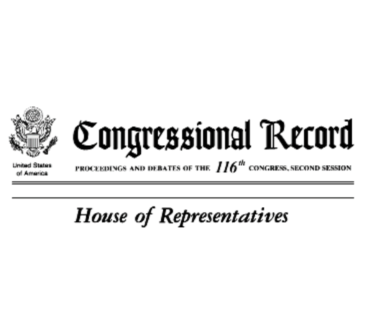Madam SPEAKER, I rise to today to update my Congressional colleagues on continued discussions between members of the Organization for Security and Co-operation in Europe (OSCE) Parliamentary Assembly. I would also like to share the desire of our international friends and allies to remain engaged with the United States during these challenging times.
My colleagues who serve with me on the U.S. Helsinki Commission and remain active include Representative Alcee Hastings of Florida, Representative Joe Wilson of South Carolina, Representative Steve Cohen of Tennessee, Representative Robert Aderholt of Alabama, Representative Gwen Moore of Wisconsin, Representative Chris Smith of New Jersey, as well as Senator Wicker of Mississippi and Senator Cardin of Maryland. As the United States Delegation to the OSCE Parliamentary Assembly, we recognize the importance of building partnerships with our counterparts from other countries especially during such unprecedented times.
As the Chairman of the Committee on Security, I recognize multilateral diplomacy works to U.S. interests when we take the initiative. Parliamentarians have a special role to play as elected officials in this process, showing the depth of each of our country’s commitment to security and cooperation not only in Europe, but around the globe.
During our most recent video conference, Italian Minister for European Affairs, Vincenzo Amendola, joined to update us on Italy’s response to COVID-19. He stressed the need for continued cooperation in response not only to the health threat but also to the economic havoc the pandemic has caused.
Shortly after our video conference concluded, Secretary of State Mike Pompeo announced the United States will provide an additional $225 million in health, humanitarian and economic assistance to boost response efforts worldwide. This is in addition to the $274 million already deployed to fight COVID-19. In the past two decades, the Secretary noted, the United States has provided $140 billion in health assistance globally, helping to make us an undisputed leader in health and humanitarian aid. Some of this aide has been to countries in Europe, including Italy. I would add that this is not only a reflection of our country’s unmatched generosity over the decades, but our national interest as well. Many of the health threats we have faced come from beyond our borders, including COVID-19, and we have an interest in trying to respond effectively to those threats where they first develop, before they reach our shores.
A final outcome of the recent video conference was endorsement of United Nation Secretary General Antonio Guterres’ recent call for a ceasefire regarding conflicts around the globe at this time when countries need to face a common pandemic threat.
The Helsinki Commission provides Members of Congress with the opportunity to work with our friends and allies around the globe to promote our shared democratic values and work in a bipartisan fashion on core foreign policy issues. While our calls have been focused on fighting COVID-19 we are still tracking other international conflicts. For example, during the video conference I, along with other parliamentarians, raised the issue of the unwarranted Russian aggression in Ukraine and Georgia. I am encouraged by the level of engagement from my OSCE Parliamentary Assembly colleagues and will continue to work with them through this global pandemic.
Madam SPEAKER, please join me today recognizing the importance of these discussions with our European allies and friends.





